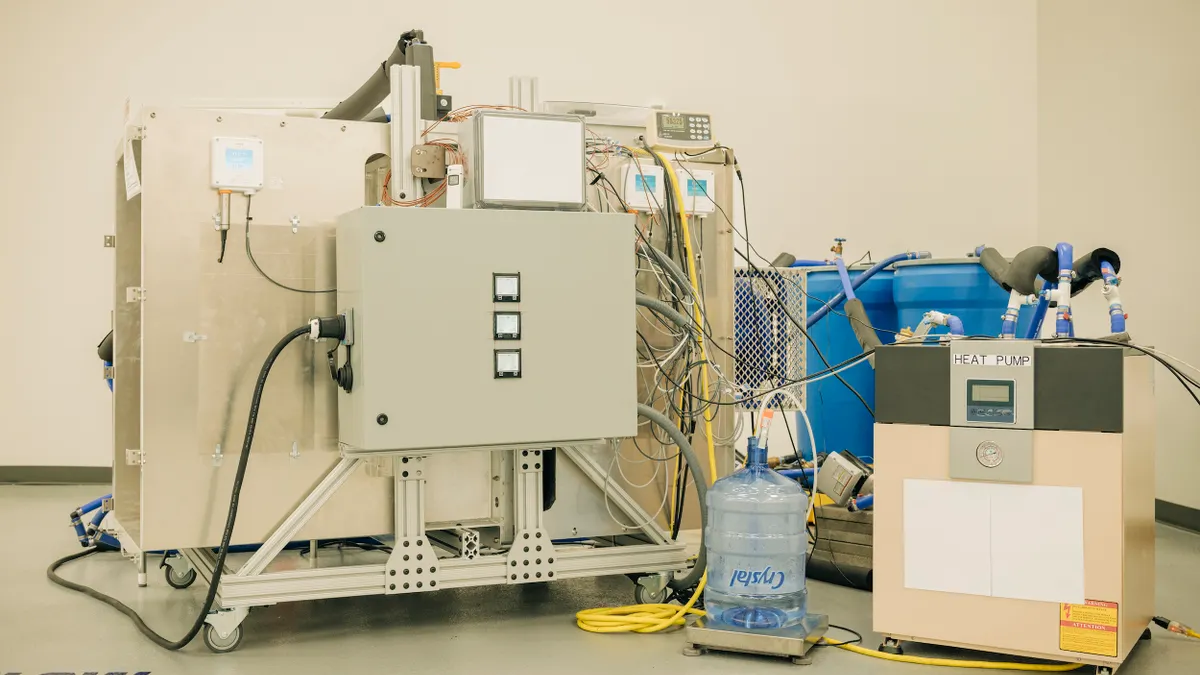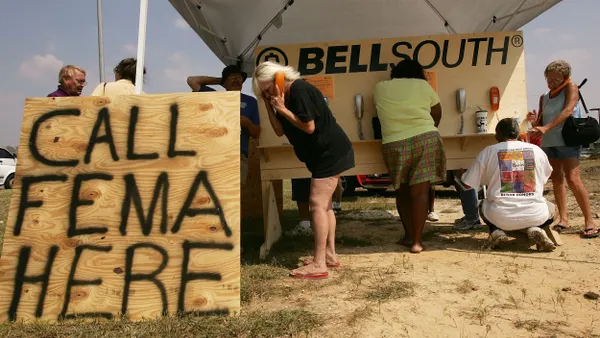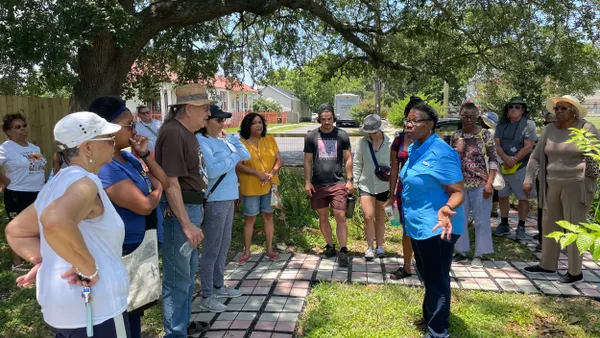Dive Brief:
- Hubbard, Texas, will be the first U.S. city to deploy an AirJoule Technologies system that generates water from air using “any readily available low-grade waste heat,” the company said in a press release Thursday.
- The company’s first field deployment of AirJoule, which it expects will be installed by the end of Q1 2026, will recover heat from a geothermal water well to produce distilled, potable water from the air.
- “Like many communities … we’re facing growing concerns about water quality, aging infrastructure, and contamination,” Hubbard Mayor Mary Alderman said in the release. “We believe [this technology] can be part of the long-term solution for communities and industries that need clean water without compromise.”
Dive Insight:
AirJoule was developed as a dehumidification and cooling technology that uses a proprietary metal organic framework to capture and condense water vapor, harvesting thermal energy and water from air using less energy than conventional systems and without using refrigerants, it says.
“Not only does it dehumidify the air, but by taking the water out as it passes through an AirJoule system, it produces pure distilled water,” AirJoule founder and CEO Matt Jore said in an interview.
In Hubbard, the AirJoule system will capture heat from the hot water coming from the geothermal well before it is cooled for human consumption, Jore said. “We’ll pull that 60-degree Celsius heat into our system and pull water out of the air.”
AirJoule will pursue certification that the water the technology produces is fully compliant with all minimum drinking water standards, “a key regulatory milestone that will enable the Company to support high-volume municipal and industrial customers with onsite water production,” according to the press release. Once it receives that certification, it plans to use the water from this project to supplement Hubbard’s municipal drinking water resources.
While the pilot project will tap into Hubbard’s geothermal well, the system could work with any waste heat source, including heat from data centers, manufacturing plants or energy production, Jore said.
Data centers produce ample waste heat and consumed 75 billion gallons of water in the U.S. in 2023. Jore said the AirJoule system could help data center projects get approval. Placing AirJoule systems next to data centers would not only produce enough water for their cooling, “but we can return water to the municipalities that wouldn’t otherwise permit” data centers, he said.
A joint venture between AirJoule and GE Vernova’s Advanced Research Center in Niskayuna, New York, has tested the water AirJoule produces and confirmed that itis “pure, PFAS-free, distilled water,” the center’s executive manager, David Moore, said in the release. “I believe this capability can help solve critical water challenges facing communities and industrial operations around the world,” Moore said.











